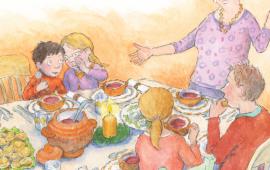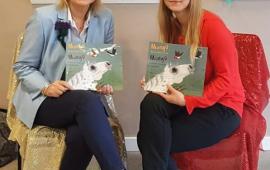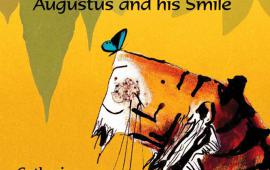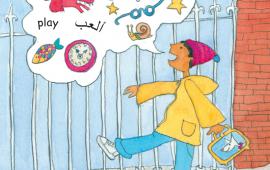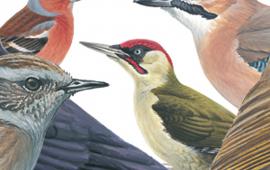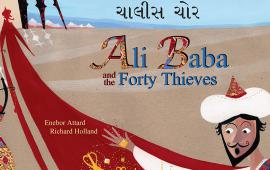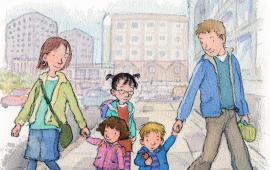Simple Ways to Boost Your Bilingual Child’s Language Skills
Raising bilingual children can be challenging, especially if you want them to speak fluently in two (or more) languages.
If you live in an English-speaking country, the English language will always be dominant for your children, regardless of what language you speak to them at home.
It is easier when they are small, but once they start to go to school and be exposed to the English language for 6 hours a day, that is when things usually change. Even if they haven’t before, your children suddenly start to speak to you in English.
You want them to speak your home language but at the same time, you want them to progress in developing their English language skills.
If this is the case for you too, no worries!
There are many ways you can boost your child’s language skills and ensure they speak both languages in equal measure.
Here are some simple everyday activities that will help you achieve that!
Watch movies in both languages
Watching movies has more power than you may think. Make sure you watch movies in both languages, ideally together. It is best if you plan TV time ahead to make sure they are exposed to both languages equally. Do not ‘force’ them to watch movies in your preferred language only, especially if you see resistance in your children, as you could risk them disliking your preferred language.
Name objects while cooking or tidying
Why not using everyday activities for learning? While you cook, tidy, or XXX, name each object you use in both languages. You can also turn it into a game, for instance: who names more objects correctly wins!
Play School
Children love being playful so the best way to learn is through play. If you worry they are exposed to English only at school and neglect your home language, create a playful environment in which they use your dominant first language at home.
Don’t overdo it though, so they don’t feel overwhelmed by learning (especially if you play school after they get back from the ‘real’ school). Keep it simple and fun!
Ask your children to name objects while out and about
During a walk or while in the car, ask your children to name objects around them in both languages. Naming things they are familiar with repeatedly can do real wonders. If you see resistance, don’t force them and instead, try to find a way to make it playful. You can also try a mini competition as mentioned in point 2.
Have a ‘one language’ day
Choose one day a month when you speak exclusively your home language. (Extra points for partners who don’t speak your first language. ) Not only is this a great way to boost your children’s language skills, but it also helps them understand that your home language is an indivisible part of your lives.
) Not only is this a great way to boost your children’s language skills, but it also helps them understand that your home language is an indivisible part of your lives.
Organise regular play dates
Make sure they have regular playtime with friends from both your home country and the country you live in. Understanding that it is not only your family th speaks two different languages will help them boost their confidence and language skills in a massive way.
Online video-services
Many streaming services now offer various language options for children's films and series. Go into "Audio" or "Subtitles" and see if they have your language.
Ask your family to send you books
If you still have family in the country you are from, ask them to always send children's books in your mother tongue. It can be difficult or expensive to find books in your own language where you live, so ask them to always gift books in your language for children's birthdays or other holidays.
Remember to never force anything. You know your children best, so find a way that works best for them. But I promise that the more fun you make the process of learning, the better and faster results you will see!
Enjoy and let us know how you get on!
In simple, large board-books like "Let's go to the Park", "Let's Go to the Farm", and "Let's Go to the High Street", your children can see familiar objects, and use the glossary at the end to both read and hear the words. For older children, something like "My Bilingual Talking Dictionary" might be more appealing, with hundreds of words written and spoken in both languages.
If you live in an English-speaking country, the English language will always be dominant for your children, regardless of what language you speak to them at home.
It is easier when they are small, but once they start to go to school and be exposed to the English language for 6 hours a day, that is when things usually change. Even if they haven’t before, your children suddenly start to speak to you in English.
You want them to speak your home language but at the same time, you want them to progress in developing their English language skills.
If this is the case for you too, no worries!
There are many ways you can boost your child’s language skills and ensure they speak both languages in equal measure.
Here are some simple everyday activities that will help you achieve that!
Watch movies in both languages
Watching movies has more power than you may think. Make sure you watch movies in both languages, ideally together. It is best if you plan TV time ahead to make sure they are exposed to both languages equally. Do not ‘force’ them to watch movies in your preferred language only, especially if you see resistance in your children, as you could risk them disliking your preferred language.
Name objects while cooking or tidying
Why not using everyday activities for learning? While you cook, tidy, or XXX, name each object you use in both languages. You can also turn it into a game, for instance: who names more objects correctly wins!
Play School
Children love being playful so the best way to learn is through play. If you worry they are exposed to English only at school and neglect your home language, create a playful environment in which they use your dominant first language at home.
Don’t overdo it though, so they don’t feel overwhelmed by learning (especially if you play school after they get back from the ‘real’ school). Keep it simple and fun!
Ask your children to name objects while out and about
During a walk or while in the car, ask your children to name objects around them in both languages. Naming things they are familiar with repeatedly can do real wonders. If you see resistance, don’t force them and instead, try to find a way to make it playful. You can also try a mini competition as mentioned in point 2.
Have a ‘one language’ day
Choose one day a month when you speak exclusively your home language. (Extra points for partners who don’t speak your first language.
Organise regular play dates
Make sure they have regular playtime with friends from both your home country and the country you live in. Understanding that it is not only your family th speaks two different languages will help them boost their confidence and language skills in a massive way.
Online video-services
Many streaming services now offer various language options for children's films and series. Go into "Audio" or "Subtitles" and see if they have your language.
Ask your family to send you books
If you still have family in the country you are from, ask them to always send children's books in your mother tongue. It can be difficult or expensive to find books in your own language where you live, so ask them to always gift books in your language for children's birthdays or other holidays.
Remember to never force anything. You know your children best, so find a way that works best for them. But I promise that the more fun you make the process of learning, the better and faster results you will see!
Enjoy and let us know how you get on!
In simple, large board-books like "Let's go to the Park", "Let's Go to the Farm", and "Let's Go to the High Street", your children can see familiar objects, and use the glossary at the end to both read and hear the words. For older children, something like "My Bilingual Talking Dictionary" might be more appealing, with hundreds of words written and spoken in both languages.
Related Posts
-
How does Christmas sound to you? The noises, tastes and textures of the festive season
-
How to help your bilingual child speak your first language
-
From A to E – why the first five letters of the alphabet are so important when it comes to vitamins
-
Writers, Illustrators and Critics of the Future - Mungo Makes New Friends at Dundee Polish School
-
What do you mean, it's mensis Sextilis? What have the Romans got to do with August?
-
December - a time for endings, and thinking of new beginnings
-
Easter Craft Ideas for Kids
-
Which do you prefer, the singer or the song? Time to celebrate International Dawn Chorus Day
-
Once upon a time – why dual language folk tales are (still) relevant in our global village
-
Back to School blues? How PENpal can help ease the burden


